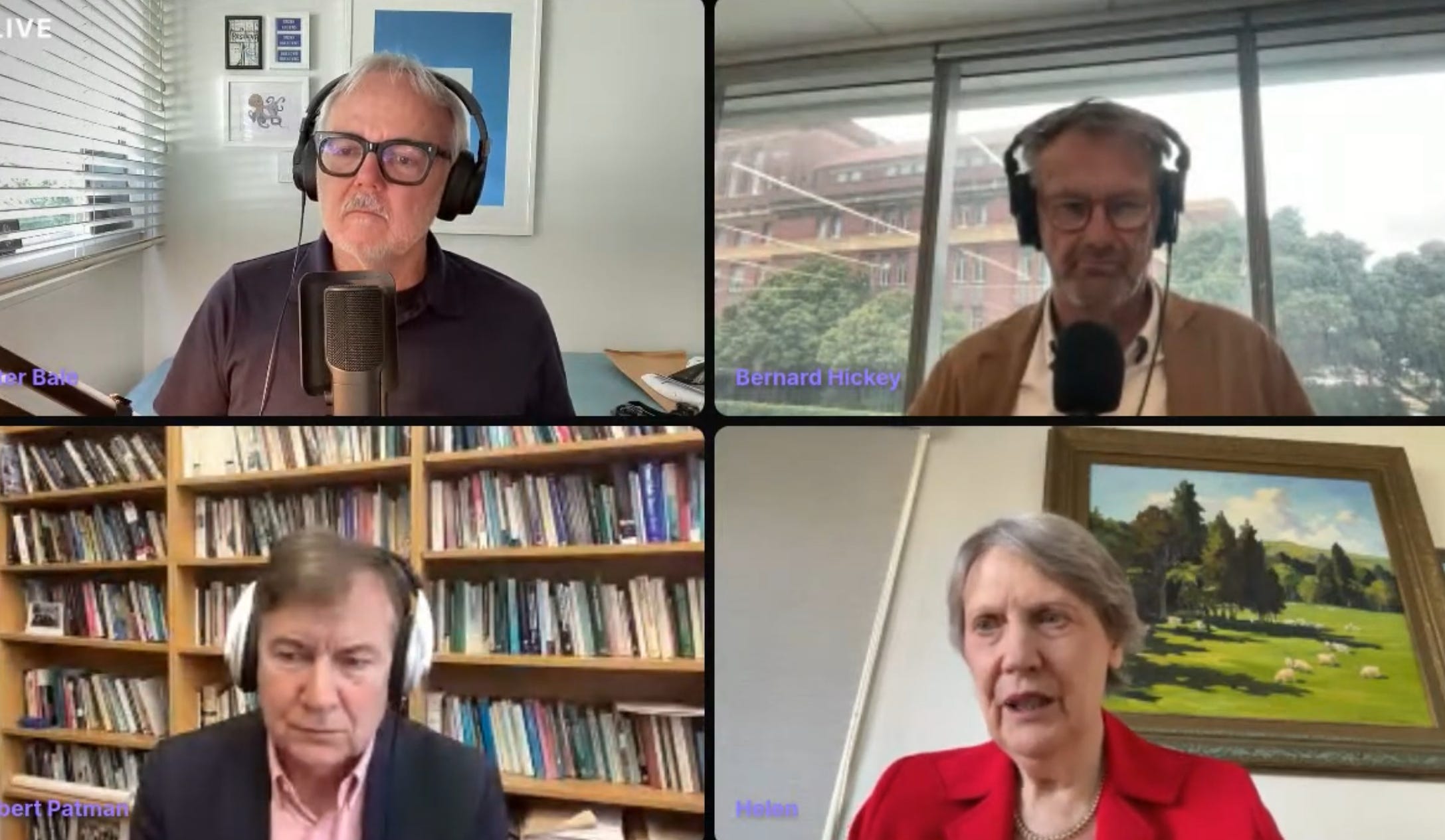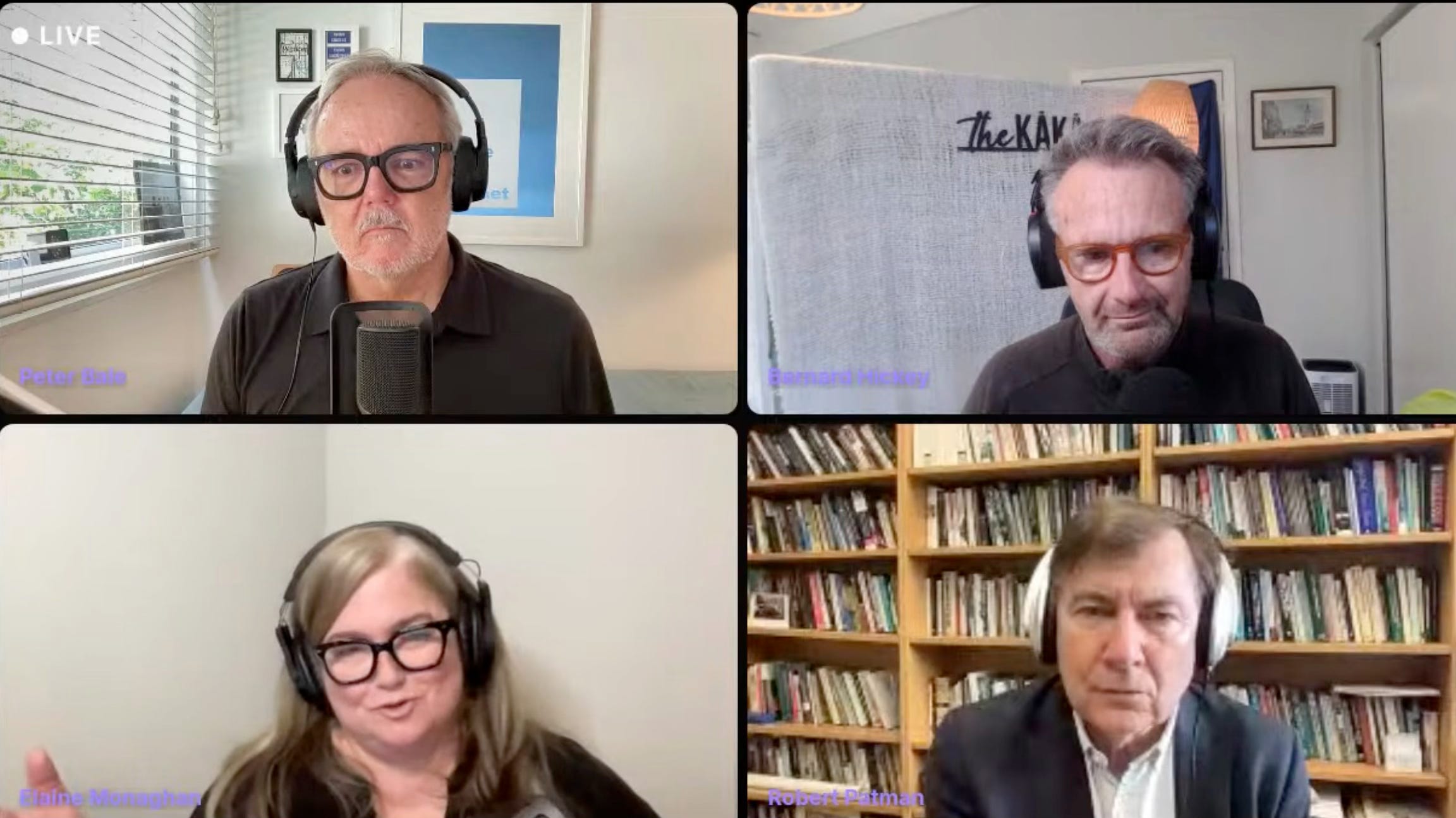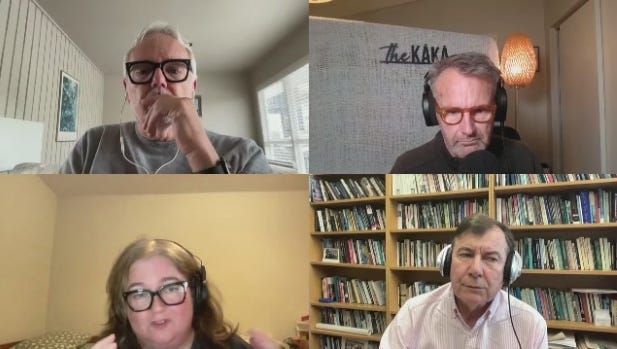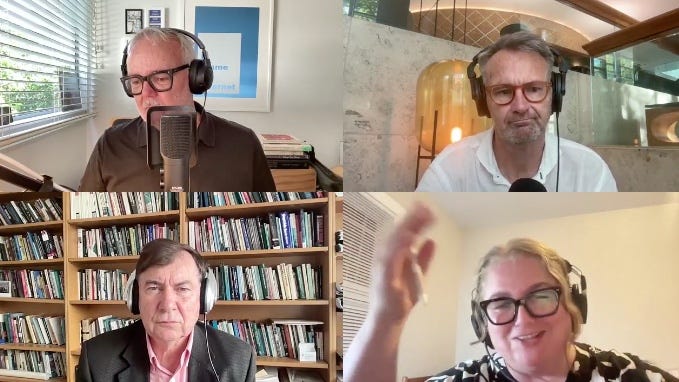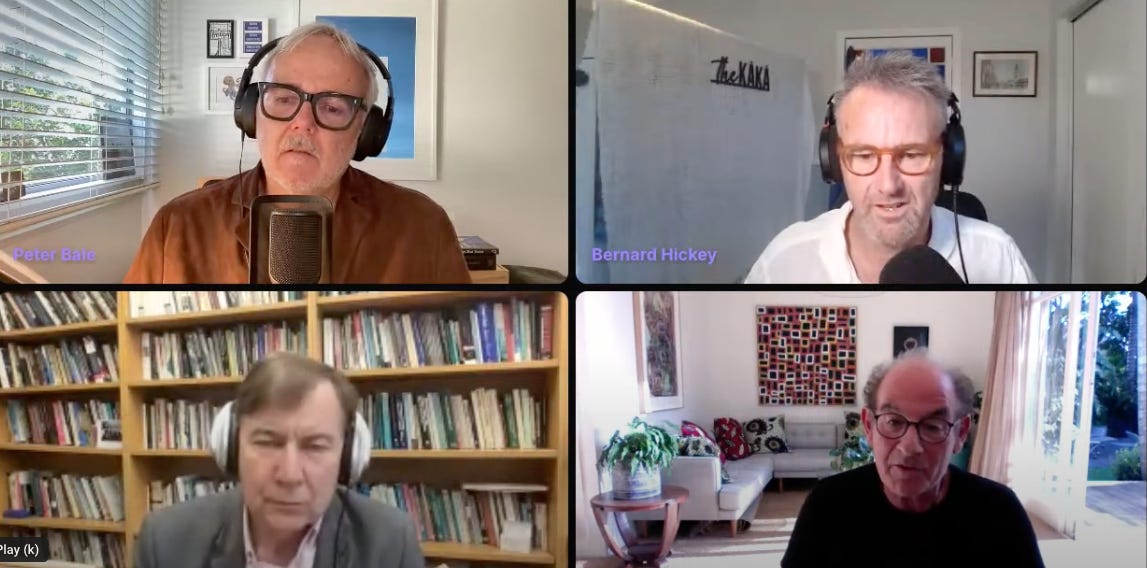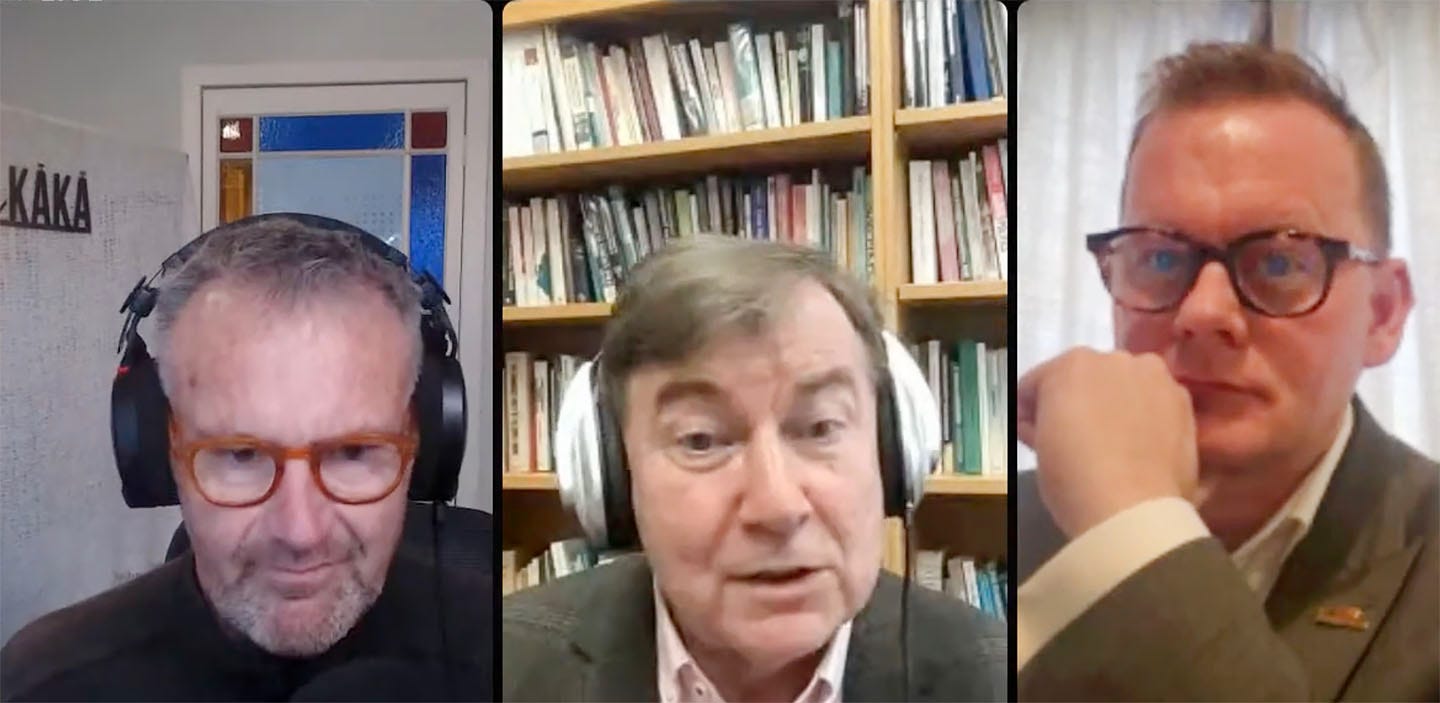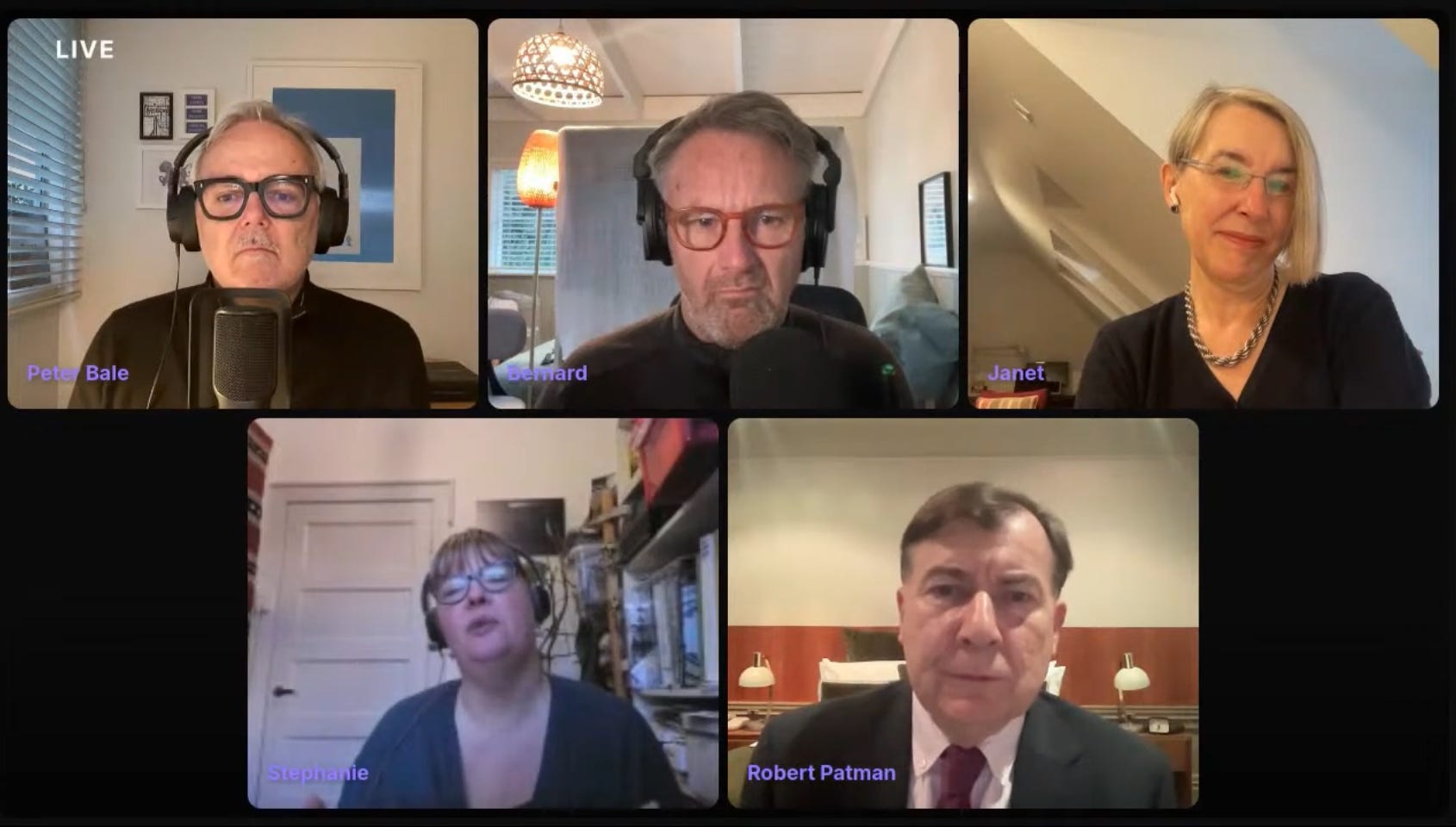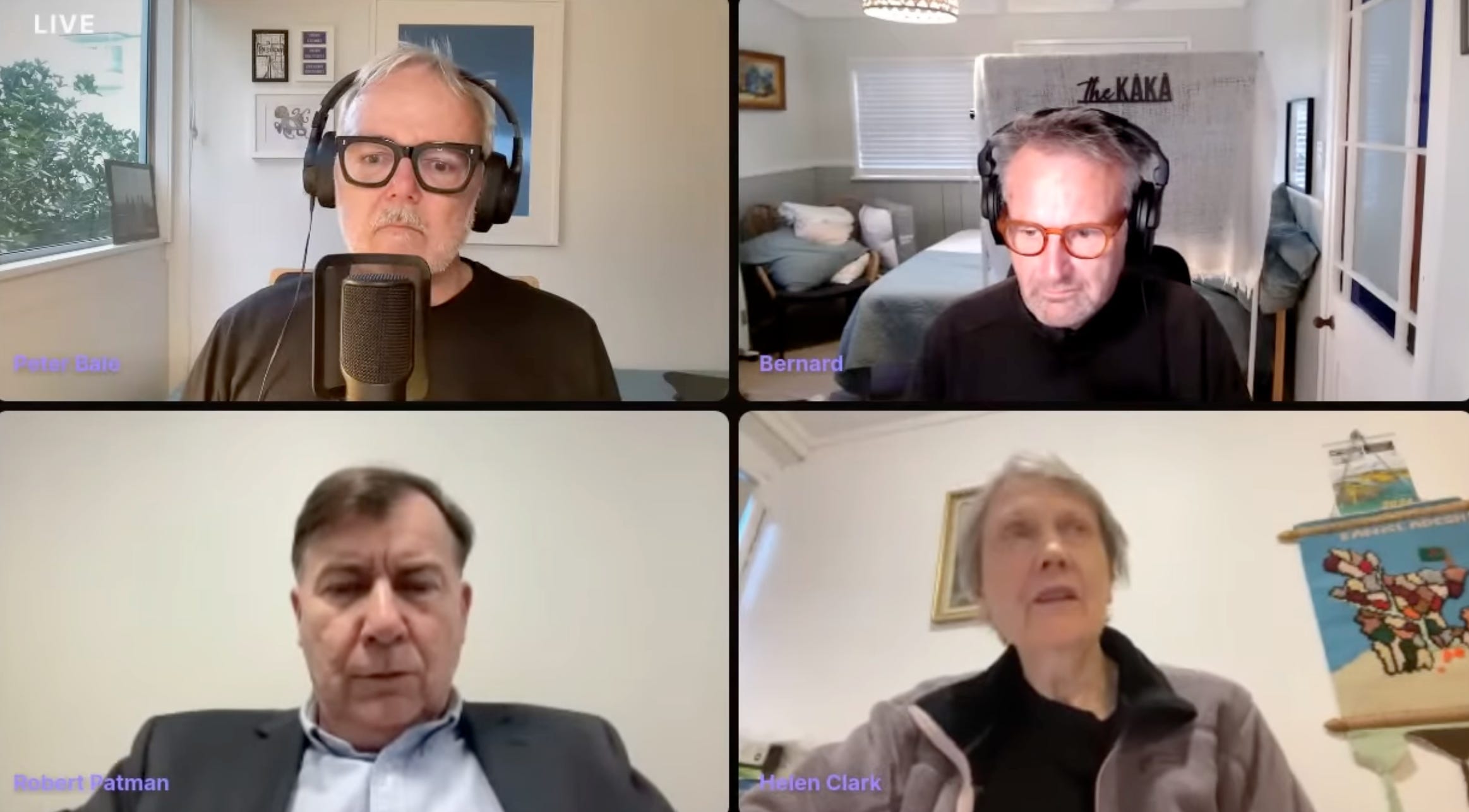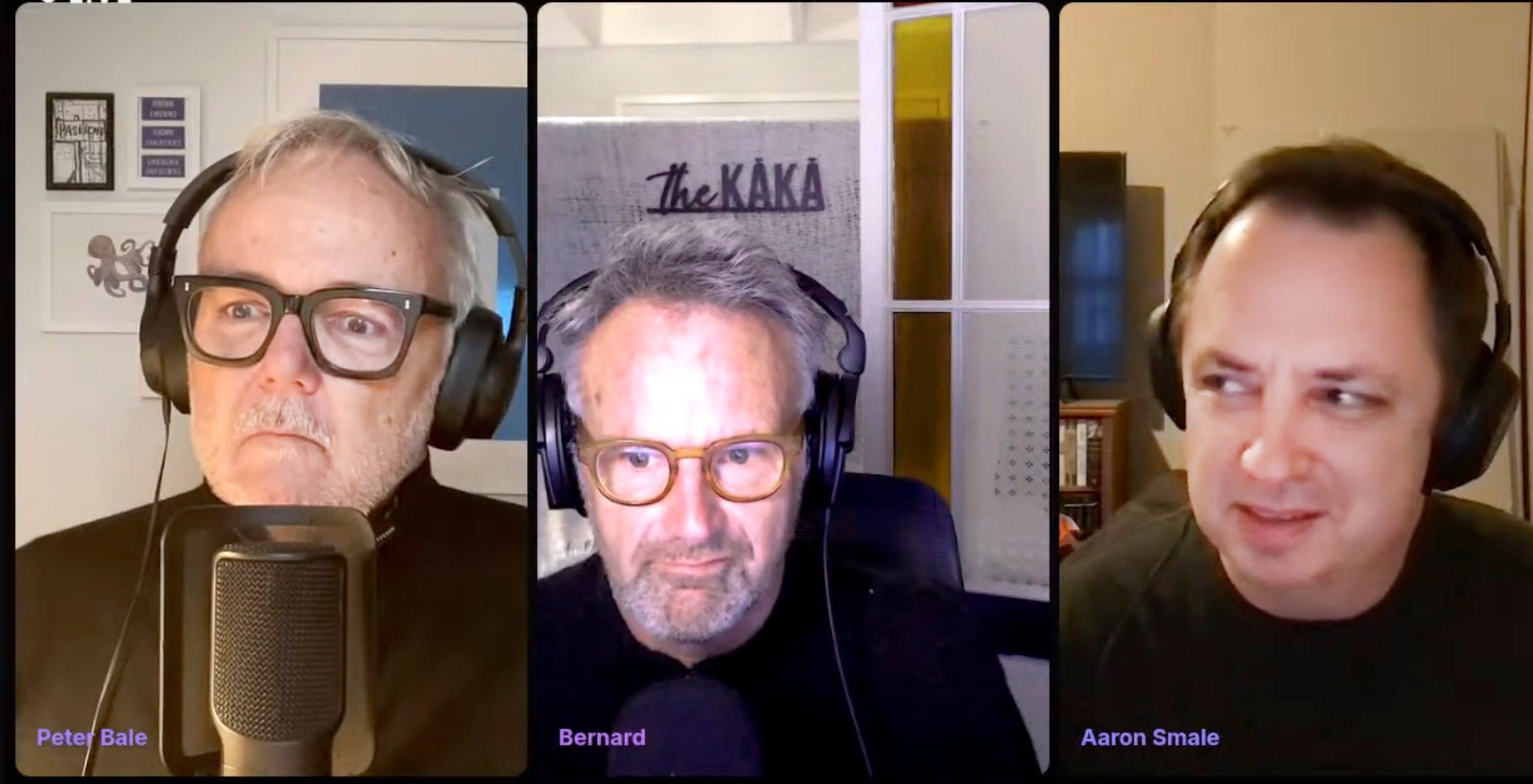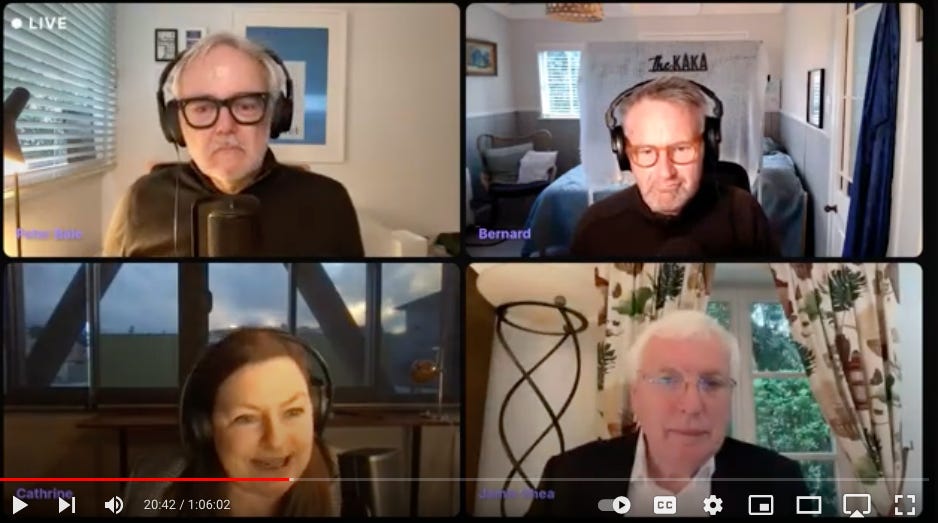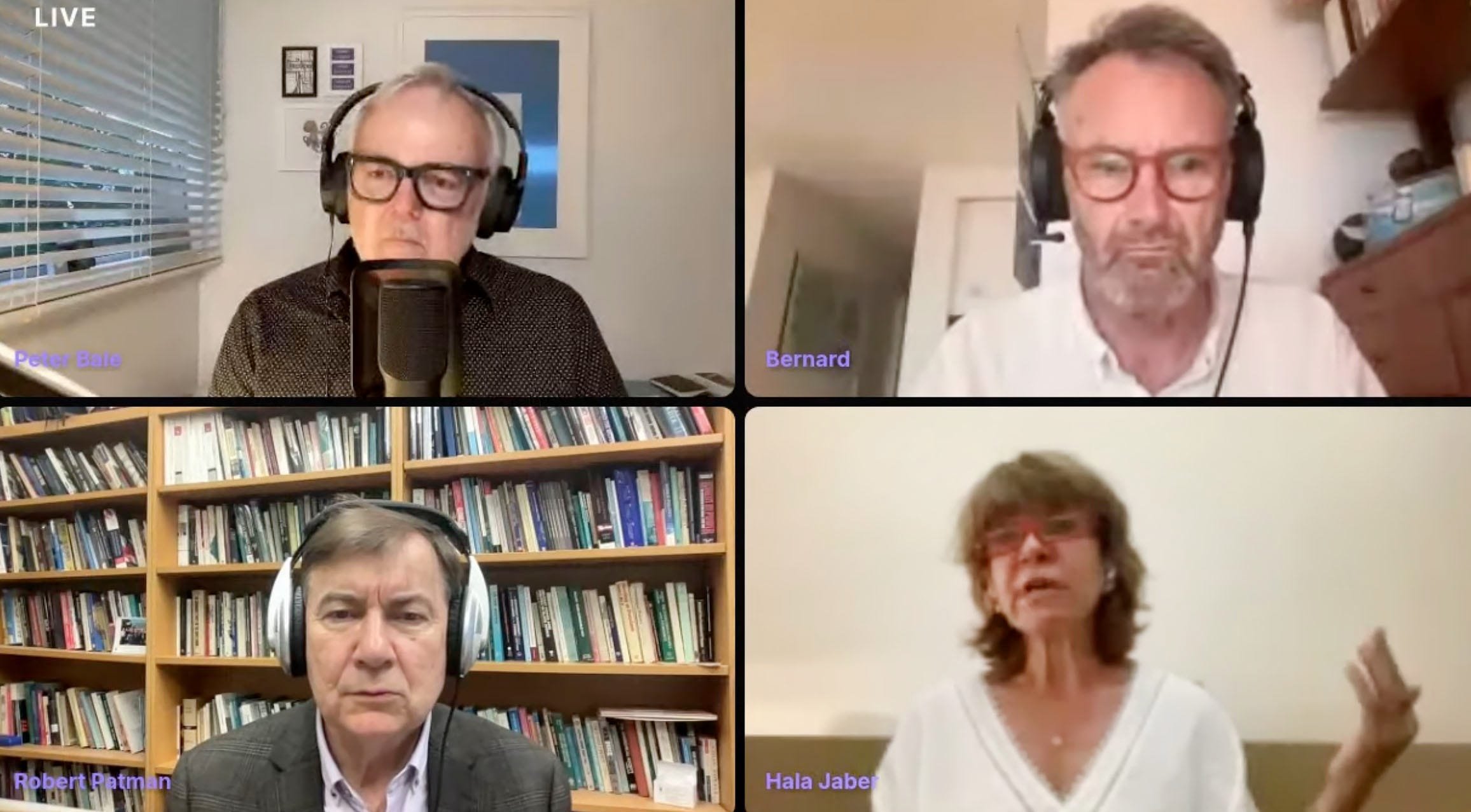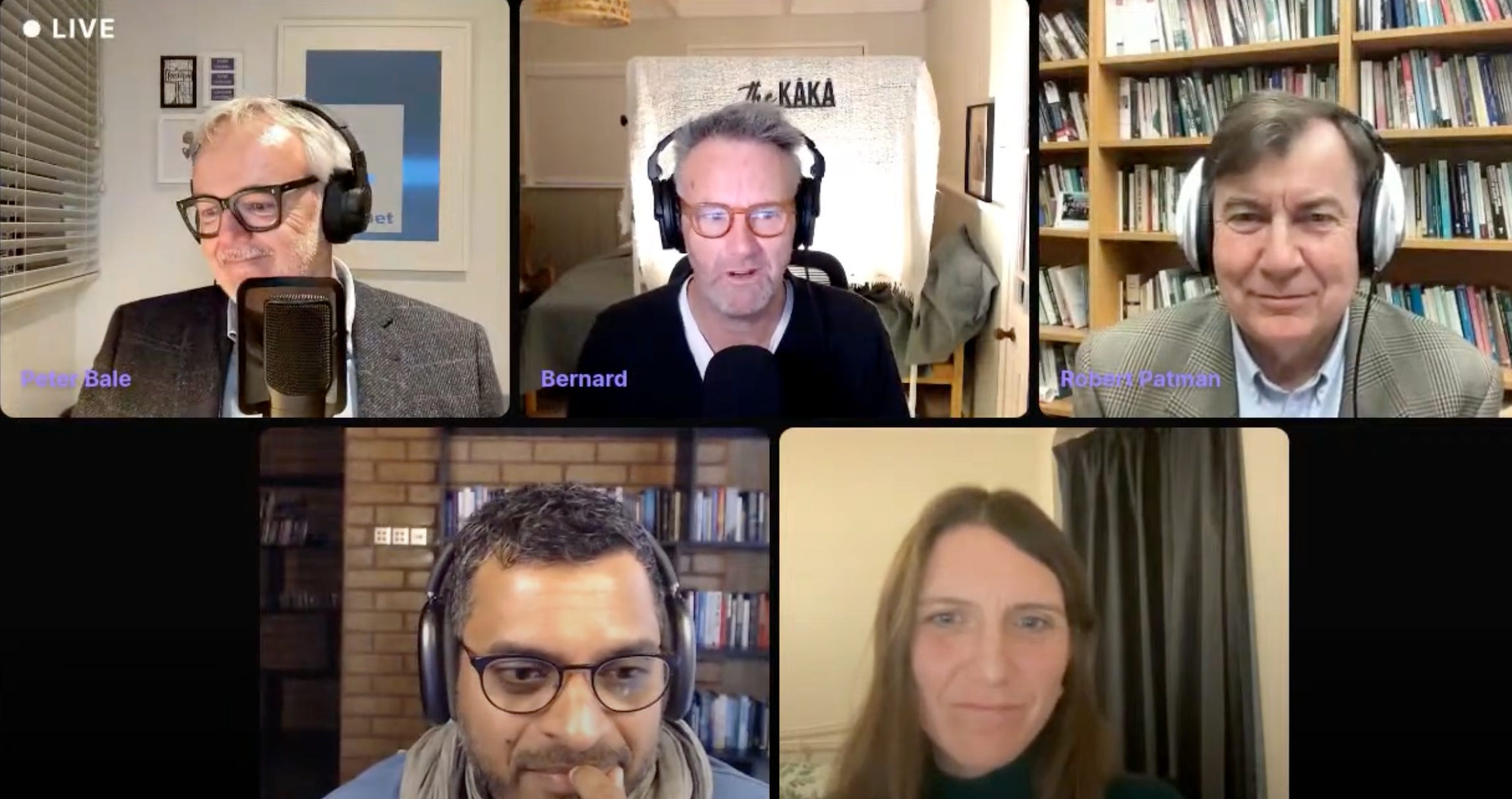Ditch the climate double speak and get real
Description
Long stories short, here’s the top six news items of note in climate news for Aotearoa-NZ this week, and a discussion above between Bernard Hickey and The Kākā’s climate correspondent Cathrine Dyer:
* The Government announced changes to the Fast-Track Approvals Bill on Sunday, backing off from the contentious proposal to give final say on development projects to just three government Ministers. Instead they now propose to allow the expert panel (selected by a government-appointed convenor) to make the final determinations. That change may appear substantive, but critics argue that it is a classic 'bait and switch'.
* In the wake of this, we ask whether the standard ‘public submissions’ approach to such powerful legislation does sufficient service to deliberative democracy? What would a genuinely responsive consultation process look like?
* Academics James Dyke, Robert Watson and Wolfgang Knorr deconstruct climate double-speak in this must read article in The Conversation UK. They argue that the concept of ‘overshoot’ and the ‘net zero’ Paris approach are increasingly detached from reality and have become more like science fiction.
* A new global stocktake study evaluated 1500 climate policies implemented over the last 25 years identified just 63 successful interventions. Collectively, these policies reduced emissions by between 0.6 billion and 1.8 billion tonnes of carbon dioxide (CO2) We emit over 35 billion tonnes globally every year.
* In NZ chart of the week, there’s a startling look at actually how much gross emissions are expected to fall here, and where the real burden lies; and,
* In global graphic of the week, there’s a new type of climate stripes.
(See more detail and analysis below, and in the video and podcast above. Cathrine Dyer’s journalism on climate and the environment is available free to all paying and non-paying subscribers to The Kākā and the public. It is made possible by subscribers signing up to the paid tier to ensure this sort of public interest journalism is fully available in public to read, listen to and share. Cathrine wrote the wrap. Bernard edited it. Lynn copy-edited and illustrated it.)
1. Ministerial override removed - but watch for the ‘bait & switch’
On Sunday, the coalition government announced five proposed changes to Fast-Track legislation in response to public submissions.
The headline change dilutes the concentration of power whereby three government ministers were to have the final say over development projects, with power to overrule an expert panel. Under the new proposal, the expert panel will have the final say.
While some critics are satisfied that their concerns have been heard, others are pointing to the landing of a predicted bait and switch, as Fox Meyer reports;
“On the first day of oral submissions for the fast-track bill, Forest & Bird’s chief executive Nicola Toki warned of a bait and switch: “Removal of ministerial override is meaningless unless environmental protections and public participation in existing legislation is retained. I want to make that really clear: that can’t be the only thing.”
Other submitters pointed to legal vulnerabilities, Treaty obligations and a lack of environmental provisions as their chief concerns.“ Newsroom
The overarching aim of the bill is to facilitate economic development, but the failure to include any environmental consideration in the Bill’s framing was highlighted during oral submissions, including by the Parliamentary Commissioner for the Environment, Simon Upton, whose concise and impactful submission you may recall.
Upton said the bill posed “significant risks to the environment”, comparing it to the Muldoon government’s similar – and deeply unpopular – legislation: “Even the much-maligned National Development Act 1979 had more environmental checks and balances.” Upton didn’t hold back, writing that the bill would “achieve sub-optimal outcomes through poor decision-making, poor allocation of resources, a lack of legislative durability, and increased litigation risk.” The Spinoff
Beyond scrapping the role of ministers as final decision-makers, and elevating environmental considerations in the process, Upton also said that project eligibility should be restricted to those that provide significant public benefits rather than private gains alone. Neither of those recommendations, nor the Auditor-General’s urging for the inclusion of better tools for managing conflict, have been meaningfully taken up.
2. Is the public submissions approach fit for purpose?
The Fast-Track Bill attracted a high number of submissions, some 27,000 from individuals and organisations.
However, a recent study of submissions to the Auckland 2050 plans showed huge demographic asymmetries (older, wealthier, Pākehā voices were loudest) .
The process is also largely one way, with no assurance that policymakers will make adjustments that are in any way scaled to the size or seriousness of the public response.
Koi Tū, The Centre for Informed Futures, housed at the University of Auckland, has been looking at alternative models for holding complex public conversations, resulting in this analysis for the International Public Policy Observatory (IPPO). The role of citizen assemblies in complex decision-making is growing internationally and has seen some early success here.
Where the current coalition Government shows no sign of deepening public involvement in policymaking (rather, the opposite), we see enormous potential for a broad expansion in the number and types of public conversations we have about complex issues ahead of the next election, but we desperately need to equip people with the tools and opportunities to have them.
3. Time to get real
On the subject of critical conversations – there is a ‘must read’ one in The Conversation UK this week on the overshoot myth.
Academics James Dyke, Robert Watson and Wolfgang Knorr use plain language to address the dissolution of the Paris Agreement’s aims into failed framings designed to ‘work-around’ the need to reduce fossil fuel use, the failure of any country to strengthen its pledges at the last three COPs while emissions continued to grow, the warning signs we have ignored including the record temperatures over the past two years (that we cannot fully explain) and the looming threat of failing natural carbon sinks and climate tipping points. Instead, we have implicitly accepted overshoot scenarios that rely on science fiction solutions to rectify the situation sometime in the future.
“It’s clear that the commitments countries have made to date as part of the Paris agreement will not keep humanity safe while carbon emissions and temperatures continue to break records. Indeed, proposing to spend trillions of dollars over this century to suck carbon dioxide out of the air, or the myriad other ways to hack the climate is an acknowledgement that the world’s largest polluters are not going to curb the burning of fossil fuels.
Direct Air Capture (DAC), Bio Energy Carbon Capture and Storage (BECCS), enhanced ocean alkalinity, biochar, sulphate aerosol injection, cirrus cloud thinning – the entire wacky races of carbon dioxide removal an


